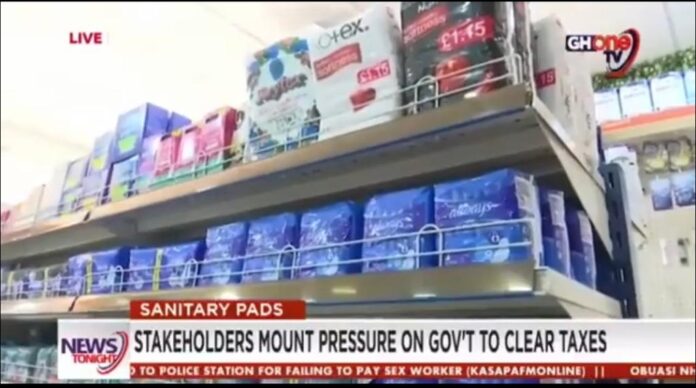
A 30-year-old Justina Adai, is currently scouting for a job but has to cough up 17 to 20 cedis every month during her menstruation period.
She says, for someone who experiences heavy flow, she sometimes requires two packs of pads each month.
According to UNICEF, 1.8 billion people across the world menstruate every month.
But for women in Ghana who make up 50.7 percent of the country’s 30 million population, menstruating is increasingly becoming an expensive process.
A sanitary pad sold for about eight cedis in 2022, is now sold between 12 to 20 cedis.
“Those days I bought it for around 5 to 8 cedis, but now I am buying it for 17 cedis. For someone who bleeds heavily, that is too much. For someone like me who bleeds heavily, it is too much”
The coronavirus pandemic, which had a global impact is said to have exacerbated the cost issue of sanitary pads as global supply chains were disrupted.
“Costs are soaring for components such as fluff pulp, plastics and cotton, leading to price hikes. Taxes placed on period products are making it harder for consumers with already stretched wallets to afford basic hygiene supplies they cannot skip.”
Director of programs at hope for future generations, Nancy Ansah believes, the lack of political will from successive governments to remove import tax of 20% and an additional 12.5% value-added tax on pads despite continuous advocacy has worsened the situation.
“The ideal situation should be that every girl must have access to safe and hygienic menstrual products without hustle. Government must show stronger commitment at reviewing these taxes.”
The implications of lack of affordable basic hygiene supplies on the health, education and psychological well-being of women cannot be over emphasized.
Some young girls whose ages ranges from 11 to 14 years share their experiences of menstrual hygiene with EIB networks Nadima Umar Uthman. They say, the high cost of pads puts their parents in a tight financial spot.
“Whenever it is that time of the month, I become scared to inform my mother I need a pad because she complains it is too expensive.”
The others said, some of their colleagues whose parents cannot afford pads, resort to unhygienic alternatives.
These are the realities of many women across Africa who are compelled to use less sanitary alternatives, such as rags, old blankets, and newspapers, which may cause urinary tract infections and other health implications.
As the advocacy continues on menstrual hygiene, it is long overdue for Ghana to join other African countries including Kenya, Rwanda and South Africa who have already removed taxes on period products.
Source: Ghana/Starrfm.com.gh/103.5FM/Nadima Umar Uthman




